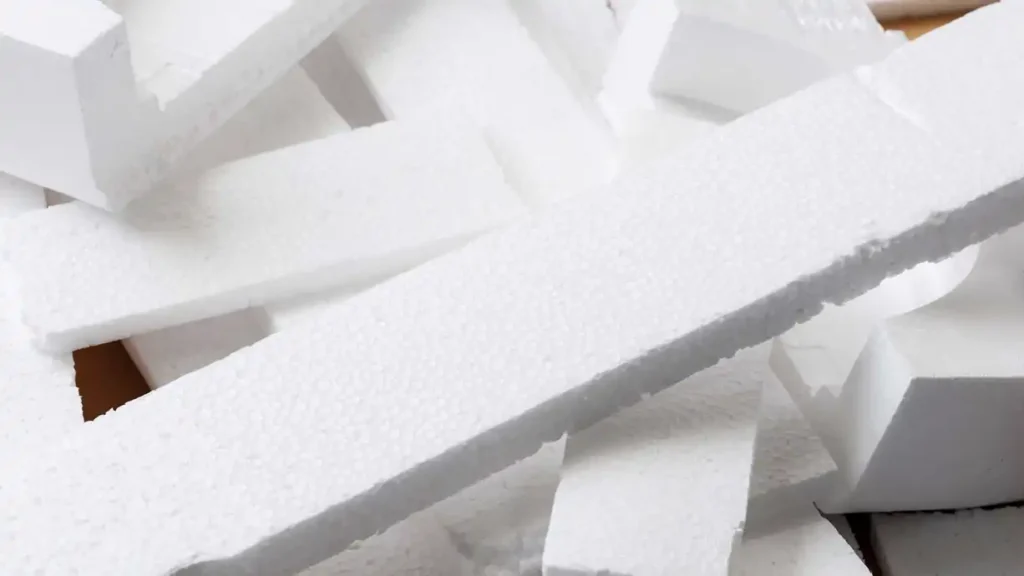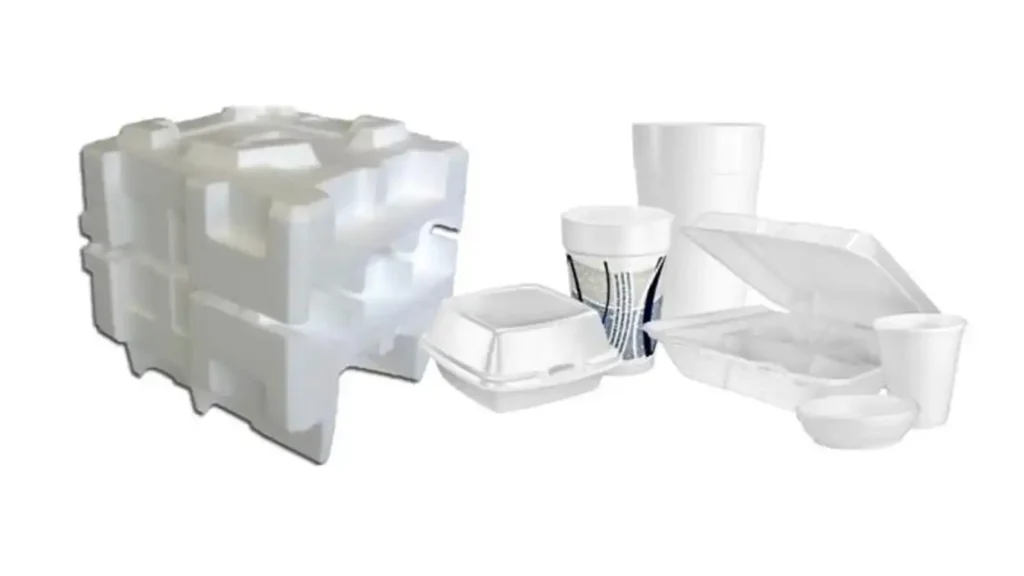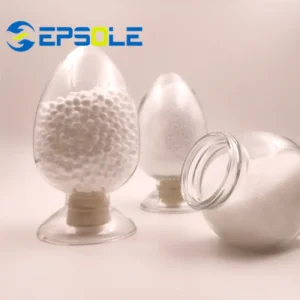In today’s fast-paced world, packaging plays a crucial role in ensuring the safety and integrity of products during transit. Among the myriad options available, EPS (Expanded Polystyrene) packaging material stands out as a revolutionary solution. Its lightweight yet durable nature, coupled with its insulating properties, makes it an indispensable choice across various industries.
Let’s delve into the reasons why EPS packaging material is leading the pack.
What Is EPS?
EPS, or Expanded Polystyrene, is a lightweight and versatile material widely used in the packaging and construction industries. It is derived from polystyrene beads that are expanded and molded into various shapes and sizes.
This material is known for its excellent insulation properties, making it ideal for packaging perishable goods, electronics, and fragile items. EPS is also valued for its affordability, as it offers cost-effective solutions for businesses seeking reliable packaging options.
In the construction sector, EPS is used in the form of insulation boards or blocks to provide thermal insulation and soundproofing. Its lightweight nature makes it easy to handle and install, contributing to energy efficiency and comfort in buildings.
Benefits of Expanded Polystyrene (EPS)

Expanded Polystyrene (EPS) offers a multitude of benefits across various industries due to its unique properties and versatility:
Lightweight Construction:
EPS is exceptionally lightweight, making it easy to transport and handle. This characteristic not only reduces shipping costs but also simplifies installation, especially in construction applications.
Superior Insulation:
One of the key advantages of EPS is its outstanding thermal insulation properties. Whether used in packaging or construction, EPS effectively regulates temperature, keeping contents protected from heat or cold.
Shock Absorption:
EPS excels at absorbing shocks and vibrations, making it an ideal choice for packaging fragile items. Its ability to cushion impacts reduces the risk of damage during transportation, ensuring products arrive safely.
Customization Options:
EPS can be molded into various shapes and sizes, offering limitless customization possibilities. This flexibility allows businesses to create tailored packaging solutions that meet their specific requirements.
Cost-Effectiveness:
EPS is a cost-effective packaging and insulation material, offering excellent value for money. Its affordability, coupled with its ability to reduce product damage and losses, makes it an economical choice for businesses.
Environmental Friendliness:
Despite misconceptions, EPS is highly recyclable and environmentally friendly. It can be recycled into new products or used as fuel for energy recovery, minimizing waste and reducing environmental impact.
Versatility:
From packaging fragile goods to insulating buildings, EPS serves a multitude of purposes across different industries. Its versatility and adaptability make it a preferred choice for various applications.
In summary, the benefits of EPS, including lightweight construction, superior insulation, shock absorption, customization options, cost-effectiveness, environmental friendliness, and versatility, make it an indispensable material in today’s market.
Advantages of EPS Packaging Material

1. Lightweight and Versatile
EPS packaging material offers unparalleled versatility, catering to a wide range of packaging needs across diverse industries. Its lightweight nature not only reduces transportation costs but also minimizes the overall environmental impact.
EPS packaging material serves as a versatile solution for protecting fragile items, electronics, and perishable goods alike. Its ability to conform to various shapes and sizes ensures a snug fit, providing optimal cushioning during transit.
2. Thermal Insulation
One of the standout features of EPS packaging material is its exceptional thermal insulation properties. Whether it’s keeping food items fresh during shipping or safeguarding temperature-sensitive pharmaceuticals, EPS serves as a reliable barrier against extreme temperatures.
3. Cost-Effective
In addition to its superior performance, EPS packaging material offers cost-effective solutions for businesses of all sizes. Its affordability, coupled with its ability to reduce product damage and losses, makes it a preferred choice for manufacturers seeking to optimize their packaging strategies.
4. Environmentally Friendly
Contrary to common misconceptions, EPS packaging material is highly recyclable and environmentally friendly. With increasing emphasis on sustainability, EPS stands out as a recyclable and energy-efficient option, contributing to a greener future.
5. Shock Absorption
The shock-absorbing properties of EPS packaging material make it ideal for safeguarding delicate items during transit. Whether it’s electronics, glassware, or automotive parts, EPS effectively dampens vibrations and impacts, minimizing the risk of damage.
6. Customizable Solutions
EPS packaging material offers endless possibilities for customization, allowing businesses to tailor packaging solutions to their specific requirements. From intricate designs to branded packaging, EPS provides a blank canvas for creative expression while ensuring maximum protection.
7. Longevity and Durability
Unlike traditional packaging materials, EPS boasts exceptional durability, ensuring products reach their destination intact. Its resilience to moisture, pests, and chemical exposure ensures prolonged shelf life and minimizes the need for costly replacements.
EPS Packaging Material Applications

Expanded Polystyrene (EPS) packaging material finds widespread applications across diverse industries due to its versatile properties and excellent performance.
Some of the key applications include:
1. Food and Beverage Industry:
EPS is commonly used for packaging perishable food items such as fruits, vegetables, seafood, and meats. Its thermal insulation properties help maintain optimal temperatures during transit, ensuring freshness and quality.
2. Electronics Packaging:
Electronics manufacturers rely on EPS packaging material to safeguard delicate electronic components during shipping. EPS provides excellent shock absorption, protecting devices from damage caused by impacts and vibrations.
3. Pharmaceutical Packaging:
In the pharmaceutical industry, EPS is utilized to package temperature-sensitive medications and vaccines. Its ability to maintain stable temperatures helps preserve the efficacy of pharmaceutical products throughout the supply chain.
4. Automotive Industry:
EPS is used for packaging automotive parts and components, providing cushioning and protection against damage during transportation. Its lightweight nature helps reduce overall vehicle weight, contributing to fuel efficiency.
5. Consumer Goods Packaging:
From household appliances to fragile glassware, EPS packaging material offers reliable protection for a wide range of consumer goods. Its customizable design allows for tailored packaging solutions that meet specific product requirements.
6. Industrial Packaging:
Industries dealing with heavy machinery, equipment, and machinery parts rely on EPS for secure packaging solutions. Its shock-absorbing properties minimize the risk of damage during handling and transit, ensuring products arrive intact.
7. Medical Supplies Packaging:
EPS is used to package medical supplies such as laboratory equipment, diagnostic devices, and surgical instruments. Its lightweight and protective properties help ensure the integrity and safety of medical products during distribution.
8. Wine and Beverage Shipping:
EPS packaging material is commonly employed in the transportation of wine bottles and other beverages. Its insulation capabilities help prevent temperature fluctuations, preserving the flavor and quality of the beverages.
9. E-commerce Packaging:
With the rise of online shopping, EPS has become a popular choice for e-commerce packaging. It provides cushioning and protection for products during transit, reducing the risk of damage and enhancing the customer experience.
10. Construction Industry:
Apart from packaging, EPS is used in construction for insulation purposes. It is commonly incorporated into building envelopes, roofing systems, and insulated concrete forms (ICFs) to improve energy efficiency and thermal comfort.
EPS packaging material offers versatile solutions for a wide range of industries, ensuring product safety, integrity, and quality throughout the supply chain. Its thermal insulation, shock absorption, and customization capabilities make it an indispensable choice for businesses worldwide.
FAQs
How is EPS packaging material different from traditional packaging materials?
EPS packaging material offers superior insulation, lightweight construction, and customization options compared to traditional materials like cardboard or foam.
Is EPS packaging material recyclable?
Yes, EPS packaging material is highly recyclable and can be processed into various new products, reducing environmental impact.
Can EPS packaging material be reused?
While EPS packaging material is primarily designed for one-time use, certain applications allow for its reuse with proper handling and storage.
Does EPS packaging material comply with safety regulations?
Yes, EPS packaging material meets stringent safety standards and regulations, ensuring the protection of both products and consumers.
What industries benefit most from EPS packaging material?
EPS packaging material finds applications in various industries, including food and beverage, pharmaceuticals, electronics, and automotive, among others.
How does EPS packaging material contribute to sustainability?
EPS packaging material is recyclable, energy-efficient, and reduces product damage and losses, thereby promoting sustainability across supply chains.
Conclusion
In conclusion, EPS packaging material stands as a testament to innovation and sustainability in the packaging industry. Its unmatched versatility, thermal insulation, and cost-effectiveness make it a preferred choice for businesses worldwide. Embrace the future of packaging with EPS, where protection meets performance.


